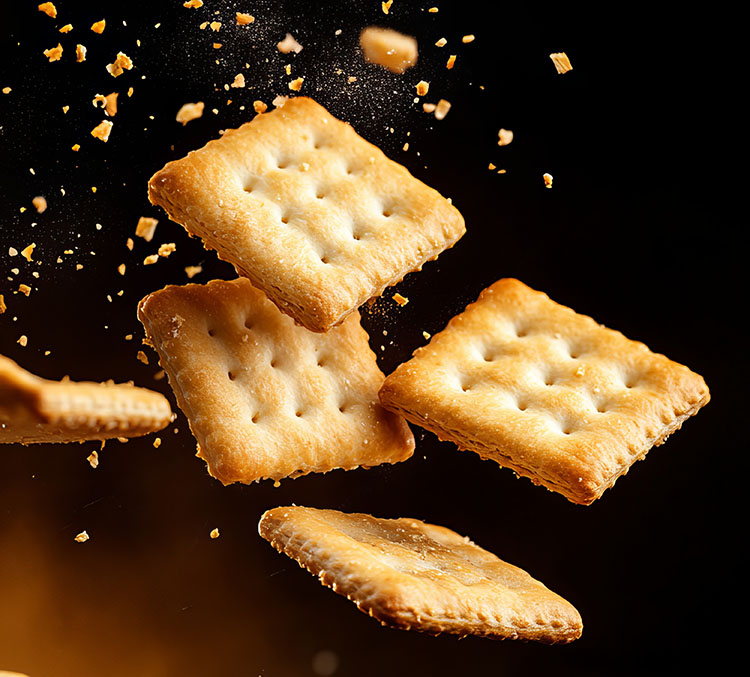
Two-stage mixing takes center stage
Two-stage batch mixing brings multiple advantages to industrial-scale baking. Two-stage batch mixing is especially suited to long-fermentation doughs, where structure and flavor are needed.
Two-stage batch mixing brings multiple advantages to industrial-scale baking. Two-stage batch mixing is especially suited to long-fermentation doughs, where structure and flavor are needed.
Artificial intelligence (AI) in manufacturing is no longer a fascinating idea – it is already here and accelerating quickly throughout many industries, especially in the baking industry. Several reasons are fueling this revolution.
Chip Czulada embarked on a new role as the President of Reading Bakery Systems (RBS) at the beginning of 2024. He shares with Baking+Biscuit International magazine his view on the first six months at the helm of the company where he has been working for over 20 years.
An entire fleet of iconic crackers built its consumer base on their open, flaky texture, which is produced by layering the dough. Reading Bakery Systems designed a new, 90-degree technology concept for the laminators manufacturing this dough.
Fully automating kneading and mixing is an ambitious endeavor, given the complexity of the process, and the diversity of raw ingredients.
Koenig Group introduced a new fully automated machine for dough dividing and rounding in March 2024: the Industrie Rex V AW EC. The system has a dough throughput of 6.5 tons per hour – meaning an hourly output of up to 50,400 pieces per hour in 14-row operation, and features Koenig’s ‘Easy Clean’ design.
Automated inspection systems are able to guarantee top product quality and safety – no exceptions allowed. In-line vision inspection technologies comprehensively inspect 100% of the products throughout the entire manufacturing process.
An internationally recognized method exists to characterize the water absorption capacity with ease and efficiency.
KPM Analytics showcases solutions that meet growing trends such as automated product inspection, process control achieved with vision inspection, processing whole wheat/high-fiber products, at-line dough quality analysis, and ingredient quality control.
‘Artisan’ and ‘premium’ are often used interchangeably when referring to bread. To Koenig, ‘premium’ products are crusty breads, with complex flavor and a chewy crumb.
There are clear requirements for the proofing process. The dough may be resting, but its transformation process does nothing but rest. The question is, always, how to improve the process? Technology brings new answers.
Technology innovation not only ensures the right temperature, airflow and humidity settings, but also addresses a priceless ingredient in baking: time. Reading Bakery Systems (RBS) recently launched a new multi-pass proofer, which was designed to do both. It is designed to be flexible in function, footprint, and form.

